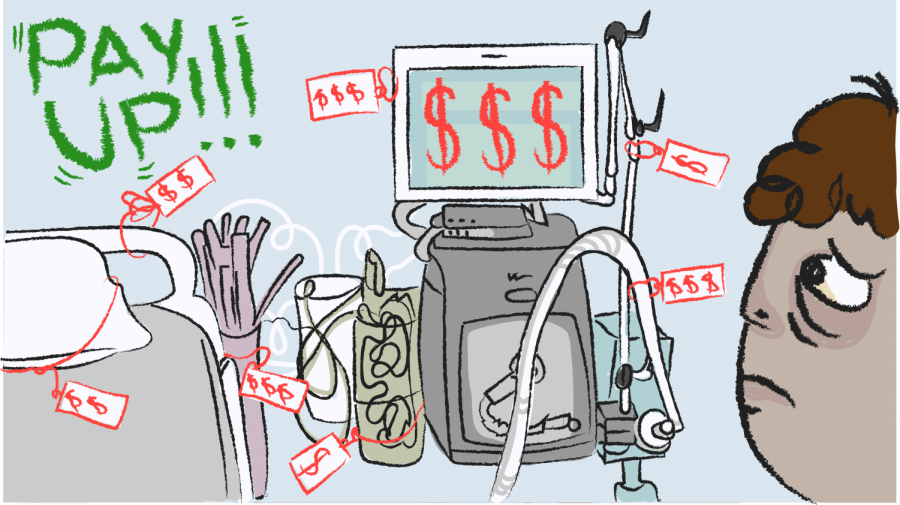Stop Deaths Caused by America’s Healthcare System
The American Journal of Public Health found nearly 45,000 annual deaths are associated with lack of health insurance. According to a West Health-Gallup survey, an estimated 34 million people, one in eight American adults, say in the last five years they have had at least one friend or family member who died after being unable to afford medical treatment for their condition.
With hospital beds overflowing with coronavirus-infected patients, public support for universal healthcare has increased by 41%, according to a poll conducted in March by the Morning Consult. At a time requiring urgent solutions, California legislators need to develop ways to financially aid families while managing the COVID-19 pandemic.
Over 28 million people in America are uninsured as of 2018, according to the United States Census Bureau as America’s private healthcare system forces residents to acquire expensive health insurance personally.
This especially burdens unemployed and illegal residents with limited access to health care as even with financial medical aid programs such as Medicaid, undocumented citizens and families who do not meet requirements are still excluded. Residents in states that do not expand Medicaid or individuals with an income even slightly above the cutoff will not receive financial aid, according to the Kaiser Family Foundation.
Uninsured individuals are also more vulnerable to death and worsening of medical conditions due to delays in making appointments and the inability to afford healthcare, according to University of Washington School of Medicine professor Andrew Wilper.
“The uninsured have a higher risk of death when compared to the privately insured, even after taking into account socio economics, health behaviors, and baseline health,” Wilper said in an article by Physicians for a National Health Program. “We doctors have many new ways to prevent deaths from hypertension, diabetes and heart disease — but only if patients can get into our offices and afford their medications.”
This risk can also contribute to additional coronavirus patients as it is harder for uninsured individuals to determine if they are positive or even find ways to afford treatment if they are.
However, not all members of the population are on board with the idea of universal healthcare, as the federal budget on government programs providing health care for certain groups of the population increased 11% from 1985 to 2012, and is expecting a 7% additional increase from 2012 to 2028, according to the US National Library of Medicine National Institutes of Health.
Still, this high budget the U.S. cannot justify the inconvenience the system causes for many citizens as the current system even burdens tax-payers and middle-class citizens equipped with private insurance.
The Kaiser Family Foundation found that patients with employer-based insurance on average can expect to pay out-of-pocket costs exceeding $1,300, and the estimated average total cost of treatment for COVID-19 patients exceeded $20,292 for major complications, $13,767 for minor complications and $9,763 for no complications.
“I do not fully support the current system. It is too expensive and complicated. America is unique in that the costs of certain drugs are much higher, and insurance rates are rising much faster,” sophomore Henry Liu said. “The overall system should be reformed so that patients can get the costs of their treatments beforehand and have a more transparent and less complicated insurance system.”
Of America’s 938, 590 confirmed cases, 42, 347 are from California according to the New York Times. In order to even prevent individuals from having to pay ridiculous amounts of money regarding healthcare in the first place, legislators need to quickly enact a law that will make test kits more accessible to citizens, which would aim to decrease additional coronavirus patients.
Testing is especially helpful because it provides citizens and the government with accurate data that encourages social-distancing and flattening of the curve, according to ABC News.
“If we already know you’re positive, that saves time too,” chief of internal medicine at Eskenazi Health in Indianapolis Dr. W. Graham Carlos said in FiveThirtyEight by ABC News. “We have treatments coming online, and we may be more apt to do those things if we have a diagnosis already.”
More insurers can waive inpatient hospital bills of coronavirus patients, following insurance companies like Aetna, saving insured residents from unreasonable medical costs. Individuals can also strictly practice social distancing to prevent chances of coronavirus infection.
The need for an overall change to the government’s health system can not be ignored long-run. In order to prepare for future emergencies and stop the burden citizens have from unnecessarily high medical expenses, a eventual push for a universal or modified healthcare system is needed.
Your donation will support the student journalists of Portola High School. Your contribution will allow us to purchase equipment and cover our annual website hosting costs.

Bia Shok is the co-news editor for her third and final year on the Pilot! She is super excited to expand the Pilot’s influence even further this year...

Nate Taylor is the 2021-22 front page editor and photo editor. He is ready to improve his design skills and create memorable Portola Pilot front covers....




